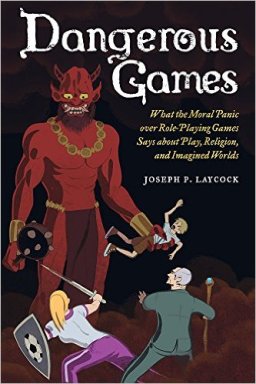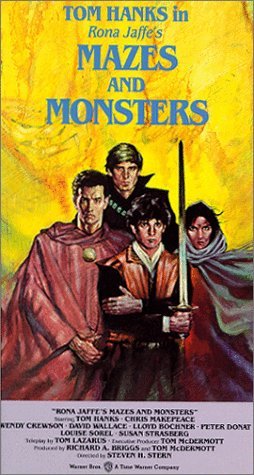Joseph P Laycock’s Dangerous Games: Revisiting the “Moral” Panic Around D&D (and You Thought the ‘Pups Were Bad)

The 80s Dungeons and Dragons Moral Panic gave my teenage AD&D group a headache… fortunately, only literally.
I confess that we drank too much beer while watching the movie Mazes and Monsters. We giggled at the odd (willful?) misrepresentation of our world, but perhaps that was a kind of false bravado because we also talked too late into the night: “Did they just…?” and “Erk?” and “WTF?”

And so, as is the way of things, we woke up without answers to those questions, but with headaches — or at least I did.
I now know that we were lucky growing up in cosmopolitan, largely secularist, middle class Edinburgh.
Scratch the Internet (e.g.) and you’ll uncover heartbreaking stories of teenagers — even outside the USA — thrown into needless conflict with their parents, and parents duped into betrayals that can’t be fixed: imagine coming home to find your lovingly created campaign world, months of work, had been burned?*
*You’ll also get a reminder that the entire United States wasn’t consumed by this latter-day witch hunt. If you guys gave us the panic, you also gave us D&D in the first place. Plus Rock and Roll and jeans. Thanks!
And when you read these heartrending accounts, you come back to the questions, “Did they just…?” and “Erk?” and “WTF?”, more or less my 12-year-old-son’s response when he heard about all this on a podcast.
Which brings us to the subject of that podcast: Joseph P Laycock’s book, Dangerous Games: What the Moral Panic over Role-Playing Games Says about Play, Religion, and Imagined Worlds.
Laycock is like a Call of Cthulhu character: a card-carrying theology professor who has set out to investigate the forces of darkness so we don’t have to.